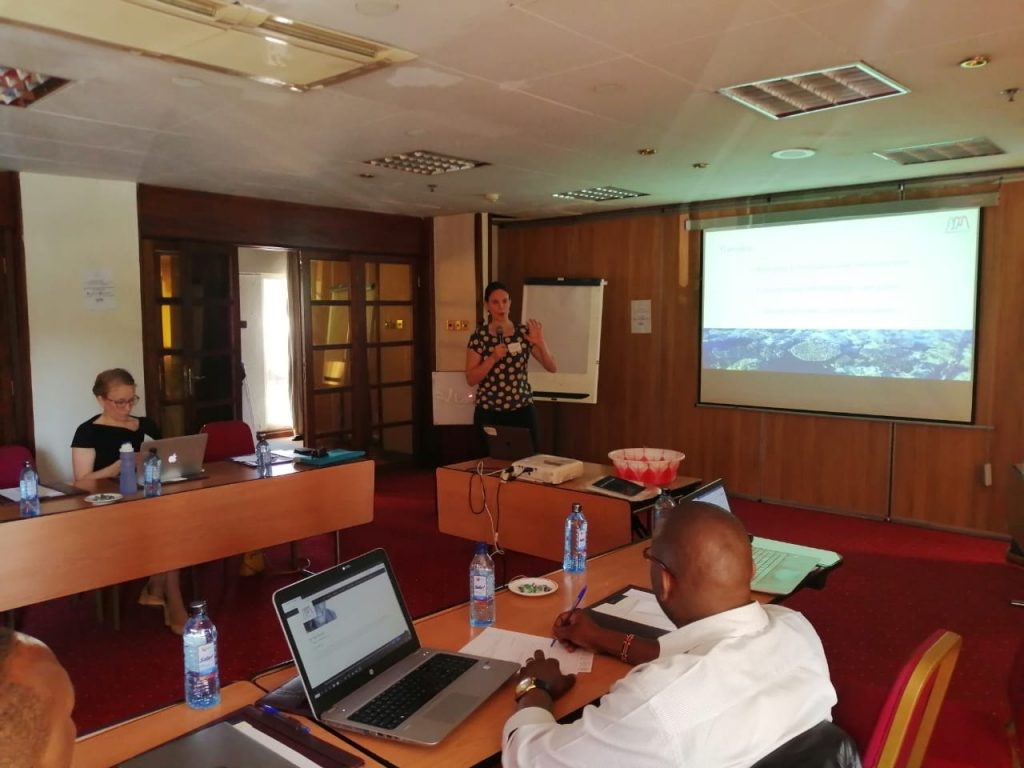
CONCEPT NOTE
INTERNATIONAL TRAINING ON PLANNING AND DEVELOPING HUMAN RESOURCE CAPABILITIES
COURSE BACKGROUND
The course is designed to address the growing need for strategic workforce planning and talent development in organizations. It recognizes that effective human resource management is a critical driver of organizational success, particularly in dynamic and competitive environments. By equipping participants with the skills to align HR strategies with broader institutional goals, the course aims to foster sustainable workforce development while enhancing organizational performance.
This course integrates theoretical frameworks, evidence-based practices, and practical tools to enable participants to analyze workforce needs, design competency frameworks, and implement impactful HR policies. It emphasizes the importance of managing the entire employee lifecycle—from recruitment and selection to development, retention, and succession planning—while addressing contemporary challenges such as diversity, inclusion, and sustainability.
Participants will gain insights into how effective HR planning contributes to organizational resilience by ensuring that human capital is not only aligned with current needs but also prepared for future challenges. The course also highlights the role of HR analytics in decision-making and performance management, enabling organizations to optimize their workforce capabilities.
By combining strategic HR planning with principles of sustainability and adaptability, this course aligns with ECAS’s mission of capacity building and fostering long-term organizational growth. It is tailored for HR professionals, policymakers, and leaders who aim to build resilient organizations through innovative human resource practices.
COURSE OBJECTIVES OF THE TRAINING
By the end of this course, participants will be able to:
- Understand the strategic role of HR in workforce planning and capability development.
- Implement effective workforce planning models to meet organizational needs.
- Develop competency frameworks to align talent development with business goals.
- Integrate sustainability principles into HR capacity-building strategies.
- Design and implement training and development programs for employee growth.
- Utilize HR analytics and performance metrics for strategic decision-making.
WHAT YOU WILL LEARN
Participants will gain insights into:
- Strategic Workforce Planning – Aligning workforce needs with long-term business and sustainability goals.
- Competency-Based HR Development – Identifying, developing, and managing key competencies for organizational success.
- Employee Learning & Development – Designing effective training, coaching, and mentorship programs.
- Talent Management & Succession Planning – Ensuring a pipeline of skilled leaders for future organizational growth.
- HR Analytics & Performance Measurement – Using data-driven insights to enhance HR decision-making.
- Sustainable HR Practices – Integrating green HRM, diversity, and ethical leadership into workforce development.
DURATION AND PROGRAM
TARGET PARTICIPANTS
This course is ideal for HR professionals, business leaders, training and development managers, talent strategists, workforce planners, sustainability officers, and policymakers looking to enhance HR capabilities in line with organizational and sustainability objectives.
TRAINING STYLE
This course adopts a practical and interactive approach to ensure participants gain real-world skills in HR planning and capability development. Expert-led lectures provide foundational knowledge, while case studies and real-world examples illustrate best practices in workforce planning and talent development. Group discussions and hands-on exercises encourage participants to apply concepts to their own organizational contexts. Action planning workshops help participants develop tailored HR strategies, and HR analytics demonstrations equip them with data-driven decision-making skills. The course also includes interactive Q&A sessions to address specific challenges and foster peer learning, ensuring a well-rounded and engaging learning experience.
TRAINING MODULES
| No | Module | Details | |
| 1. | Strategic Workforce Planning |
This module focuses on aligning workforce planning with business and sustainability goals to ensure long-term organizational success.
|
|
| 2. | Competency-Based HR Development |
This module explores how competency frameworks help in building a skilled and adaptable workforce.
|
|
| 3. | Employee Learning & Development Strategies |
This module focuses on creating a culture of continuous learning to enhance workforce capabilities.
|
|
| 4. | Talent Management & Succession Planning |
This module covers strategies to attract, retain, and develop talent for long-term organizational success.
|
|
|
5.
|
HR Analytics and Performance Measurement |
This module emphasizes data-driven decision-making to optimize workforce performance.
|
|
| 6. | Integrating Sustainability in HR Development |
This module explores the role of HR in fostering sustainable business practices.
|
|
GENERAL NOTES
- Training manuals and additional reference materials are provided to the participants.
- Upon successful completion of this course, participants will be issued with a certificate.
- We can also do this as a tailor-made course to meet organization-wide needs. Contact us to find out more: info@ecasiafrica.org.
- Payment should be sent to our bank account before the start of training and proof of payment sent to: info@ecasiafrica.org.
ABOUT ECAS INSTITUTE
The ECAS Institute designs and delivers independent and targeted training, research, and consulting services. Our work focusses on climate change and resilience building, carbon markets, renewable energy, nature-based solution, biodiversity conservation, agriculture and food systems, We are located in Nairobi Kenya and work across the African region. We have implemented training and research assignments in Kenya, Tanzania, Uganda, South Sudan, Somalia, Malawi, Rwanda, Congo, and South Africa. Globally, we have supported our partners from the UK, Denmark, Italy, Sweden, Germany, and USA.

